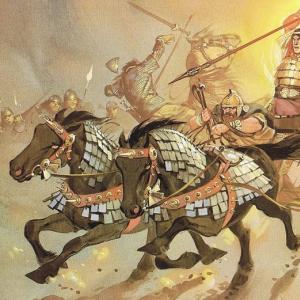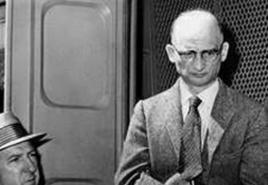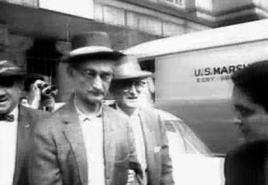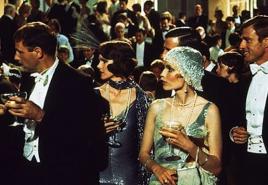A message about brave people. Presentation
1. Feelings of fear. 2. The concept of "courage". 3. Do you need courage in the fight against evil. 1. Paragraph 11 - read and retell. 2. Questions under the heading "Check yourself" - orally. 3. Task number 6 (p. 98) - in writing in notebooks, task number 2 (p. 98) - orally.
Fear is a negative emotion that arises as a result of a real or imagined danger threatening the life of the organism, the individual, the values \u200b\u200bshe protects (ideals, goals, principles, etc.). Pain Death Disease Punishment Loss of loved ones
"Courage to the power of the governor." "Courage is half the salvation." "A bold attack is half the victory." "There are no two deaths, and one cannot be avoided." "To be afraid of wolves - do not go to the forest." "Seven troubles - one answer." "Fear has eyes like bowls, but not a crumb!" "The eyes are afraid, but the hands are doing." "Sink or swim". "Risk is a noble cause." "Fear cannot be enough for every misfortune." "A dog barks at a brave one, but vomits a cowardly one." "One died of fear, the other came to life."
Mask of Phobos Read paragraph 11, point 1 and answer the questions: 1. How in ancient times people explained the origin of fear in myths? 2. How can you explain the “kinship ties” of fear and horror with war, quarrels, strife? 3. What are phobias? 4. Can we say that there are people who are unfamiliar with fear? 5. Is fear always harmful?
Consider the painting by K. Bryullov "The Last Day of Pompeii" and answer the questions: 1. What do you know about the fate of the city of Pompeii? 2. What is depicted in the painting by K. Bryullov? 3. By what signs can you determine how the feeling of fear of a formidable eruption manifests itself in people? 4. What examples of courage do you see on the canvas of the great master?
Give examples of showing courage. What is courage? Courage is a moral quality that characterizes a person's ability to overcome feelings of fear, uncertainty in success, fear of difficulties and adverse consequences for him.
Continue a series of synonyms for the concept of "courage": courage, courage, courage ... Still from the movie "Officers"
Evgeny Nikolaevich Chernyshev Read the material in paragraph 11, p. 94 and answer the question: Why did E.N. Chernyshev can be called a brave person?
“Everyone is equally afraid. Only one is completely limp, and the other is in control. And you see: the fear remains always the same, but the ability to keep oneself from practice is increasing: hence the heroes and the brave. " A.I. Kuprin Fragment of the painting by V. Panfilov "The feat of the Panfilov heroes"
One of the surest ways to defeat fear is to laugh. Listen to the recording of V. Vysotsky's song "Scary, already horrible" and answer the questions: 1. Why is it not scary when it's funny? 2. What do you think is the mood of this poem? 3. How does this poem make you feel?
Courage: features and development opportunities
05.05.2015Snezhana Ivanova
Courage is the ability of a person to suppress fear and take responsibility for the chosen way of solving a problem or task ...
Among the many traits and characteristics of personality that psychology distinguishes, the most significant are volitional qualities, namely: perseverance, independence, initiative, determination, endurance and self-control (in it, courage and courage are distinguished). All these qualities help a person to control their actions and behavior.
Courage can be talked about when there is a fact of overcoming fear, and it is precisely such actions of a person that can be confidently attributed to the most important and serious act. Courage helps fight fear, a source of anxiety and stress that can harm both physical and psychological health. In the psychological literature, you can find many different ways and methods that help find the answer to the question "How to get courage", and "How to overcome fear and cowardice"... But in order to move on to the analysis of various techniques and exercises that will help develop this quality, you first need to analyze what is meant by courage as a category of psychology.
Human Courage: Definition and Characteristics
In the definition of the concept "courage" must proceed from the main reason for its occurrence is fear... Indeed, if a person did not experience fear, he would never know what courage is. Fear in this context can be viewed as a kind of preparation for a possible extreme and threatening situation. When this moment comes, fear, as it were, loses its original meaning, and the peculiarities of its experience by a person undergo a certain transformation. Fear can increase or decrease when a person is faced with a critical situation for himself. Here comes the time for active action, which finds its expression in the flight from fear or in the fight against it. It is in the latter case that the emergence of courage as a personality trait will be observed
A person's courage is often viewed as a moral quality of a person, which indicates the ability of people to deal with emerging fear, overcome uncertainty and danger, as well as overcome various difficulties and consequences. In psychology, by the same token, courage is understood as the quality of will, the special readiness of a person to overcome obstacles and fight fear. The main features of courage as a strong-willed quality are meaningfulness, timeliness and prudence during the decision-making of tasks and issues arising in the process of activity, the subsequent embodiment of the decisions made, the absence of fear of taking responsibility for one's choice and implementing it even in conditions of possible risk to one's own health and life.
Thus, in psychology, courage is viewed from the point of view of a positive volitional quality of a person, which is defined primarily as a person's ability to suppress fear in himself and take responsibility for the chosen way of solving a certain problem or task. Also, courage is understood as a certain readiness of a person, as well as his ability to follow the path of realizing a set goal, without bowing to difficulties, dangers and other emerging difficulties that may threaten his well-being.
Based on this understanding of this category of psychology, it can be assumed that it is possible to say that a person lacks courage when he deviates from the decisions made under the influence of critical situations and the understanding that this can harm him. But here it should also be noted that courage does not mean that a person does not have any fears or knowledge of the main ways of solving extreme situations. Courage is the ability of a person to act in an environment in which it is considered normal not to take any special action.
In psychology, human courage is considered in two aspects:
- as a characteristic of an act;
- as a definition of a person (personality trait).
A more detailed description of understanding courage from the point of view of this context is discussed in the table.
Understanding courage in psychology
Courage, as a certain ability of a person to suppress natural biologically determined defense reactions that arise at the time of experiencing fear, and at the same time to most effectively control his actions, deeds and behavior in general, has a number of characteristic features, namely:
- it involves the implementation by a person of decisive actions aimed at achieving certain goals;
- provides for the manifestation of fidelity to those ideals, principles and beliefs that a person is guided by, even despite the extremeness of the situation in which he finds himself, and the hostile attitude from others;
- it is an honest and open expression of one's own views and life positions (especially this will be an important indicator of courage, if all this contradicts existing stereotypical views and forms of thinking);
- courage manifests itself in intransigence to the implementation of negative actions, malicious intent or injustice in relation to another person.
The main reasons for the development of human courage and features of its manifestation
Many examples of people's courage in history and literature allow to note that feats, initiative, decisiveness and opposition to the formed false opinion or perception are considered more vivid manifestations of this volitional quality. So, for example, speaking about the massive manifestation of people's courage, history contains information about many events - these are wars, revolutions, and scientific discoveries, which were accompanied by persecution of scientists and even cruel reprisals against them. (Roger Bacon, Nicolaus Copernicus, Giordano Bruno, Miguel Servet, Galileo Galilei, Nikola Tesla, Boris Bolotov, etc.).
Examples of people's courage are found in modern times, as the names of people are known who in their lives faced critical situations, but did not give up and did not succumb to fear. So, courage is characteristic of people who save lives of others (EMERCOM employees, rescuers, paramedics) or are forced to overcome natural biologically conditioned human fears on a daily basis associated with the instinct of self-preservation (pilots, cosmonauts, testers). Courageous people are also called people who, despite all the difficulties that they encountered on their life path, did not break. Among the most prominent personalities who are called courageous, it is worth mentioning:
- Nika Vuychich, who lives without limbs, while he is not only a full-fledged member of society, but also sets an example for other people with disabilities how to survive in difficult moments of life;
- Bethany Hamilton, a surfer who lost her arm as a teenager, but this did not stop her on the way to achieving her goal (she takes part in competitions, winning many awards one after another);
- William Trubridge, who is a world (two-time) champion in a very dangerous type of diving - freediving (diving is carried out without scuba gear);
- Philippe Petit - a famous tightrope walker who walked along a rope (length was 61 m) at an altitude of 450 m and this happened without belay;
- Fyodor Konyukhov, who is known for his travels around the world and repeated crossing of the Atlantic.
A bold act of a person can be due to various reasons, namely:
- moral duty;
- despair;
- balanced and well-considered risk;
- cowardice (in the event that the courage of a person in one situation allows you to avoid a much greater danger or difficulty in another).
As for the person who has not enough couragethen here they talk about lack of development of the following moral qualities:
- courage;
- stamina;
- self-control,
- initiative;
- adherence to principles;
- criticality.
A person's courage includes certain ones, which make it possible to determine the presence or absence of this personality trait: courage, perseverance, dedication, and strength. But, despite the fact that in most cases, courage is viewed as a positive quality of will, it may be appropriate in a particular situation or inappropriate (for a number of reasons). Courage is considered appropriate when it is aimed at building cooperation, is distinguished by awareness and meaningfulness, the presence of a plan and strategy for action in a specific situation, and various forms of response are provided, depending on external factors. Courage can be considered inappropriate, If she:
- characterized by impulsiveness, with a short-term perspective;
- manifests itself as support for patterns, stereotypes and unfounded principles;
- there is no plan, no strategy, no outcome options.
Human courage can be roughly divided into two types:
- courage to start acting, leaving a certain comfort zone (determination plays a special role at this stage);
- courage to continue the action begun, regardless of the impact of various external factors and conditions (persistence is important here).
Building Courage: The Most Effective Techniques
A person's courage, like any other personality trait or skill, can be developed. To do this, you just need to determine the goal and choose the most optimal ways and methods to achieve the intended result. At the very beginning of work on yourself, you need to understand what needs to be done and how to gain courage in order to develop this very courage. So, you need to learn some rules and basic conditions that will help in this rather difficult task. They are as follows:
- systematic work on oneself should be carried out, aimed at reducing the impact of fears and forming the necessary qualities for showing courage;
- you need to increase self-confidence and strive to form an adequate level of self-esteem;
- it is worth devoting 3 days a week to sports (which is primarily aimed at building strength, dexterity, flexibility, confidence, resilience and determination in a person, which in turn has a significant impact on the development of his courage);
- it is necessary to direct the work to overcoming already formed fears (especially phobias), in this case it is worth turning to psychologists or psychotherapists for help, who, in a safe environment, will teach the ways and methods of dealing with them;
- you need to direct an effort to the development of volitional qualities, self-control and self-regulation.
In psychology, there are several of the most effective methods that contribute to the development of courage:
- gradual loads (a person gradually increases the load in the area where he experiences difficulties and fears);
- depreciation (the goal is to minimize the problem situation in importance);
- spontaneity of action (creating a situation when it is necessary to make spontaneous decisions, that is, to move away from the existing plan and resort to new methods of action);
- a real example of courage (visualization increases a person's confidence that he can do this, the main thing is that the example is real and the courageous person is of the same level);
- relaxation (breathing exercises, meditation, removal of muscle clamps);
- awareness or understanding (in order to develop courage, it is necessary to initially realize the real reasons for this desire, to understand what is needed in reality);
- self-knowledge and self-development (in order to develop any qualities in oneself, it is necessary to study your individual characteristics and manner of communication with other people, and then start active work on the development of your personality);
- introspection, reflection and introspection (you need to learn to know and understand yourself).
If you cannot solve the question of how to gain courage yourself, then you should attend special trainings that are aimed at developing and improving your personality.
Social Studies Test Be Bold for Grade 6 Students with Answers. The test contains 2 options for 8 tasks and is designed to test knowledge on the topic The moral foundations of life.
Option 1
1. Indicate a definition that shows the benefits of fear. Fear is
1) emotion common to all people
2) phobia, which can develop into illness
3) danger warning
4) negative emotion
2.
Overcome fear
1) you can, if you understand its reason
2) impossible, because this is an innate property
3) means to hide from impending danger
4) only heroes can
3. Indicate a position from the following that summarizes the list: cowardly, fearful, fearful.
1) cowardly
2) brooding
3) stupid
4) boring
4. The proverb "Fear takes away strength" means that
2) fear weakens a person
5. Fearlessness helps in life, but does not solve all problems - says the proverb
1) Fight bravely for your own business
2) fear has big eyes
3) Do not be afraid, and do not boast
4) Courage is important, but skill is also needed
6.
1) A dog suddenly jumped out onto the path in the park. Anton got scared and shielded his little sister.
2) Sonya was afraid of dictation and prepared a cheat sheet.
3) Mom was afraid of being late for the train and set the clock fifteen minutes ahead.
4) Oleg and Polina were afraid that from the last row they would not be able to see the performances of the artists, and asked their parents to change tickets.
7.
1) By fostering courage, a person resists evil.
2) The need to help loved ones can make a person fearless.
3) It is much easier to show courage alone than in front of other people.
4) Only weak people experience fear.
8. Fill in the blank in the table.
Option 2
1. Indicate a definition that shows the benefits of fear. Fear is
1) a reaction that is characteristic not only of humans, but also of animals
2) waiting for trouble
3) dangerous emotion
4) innate defense reaction of the body
2. Complete the sentence correctly.
Self-control in the moment of fear
1) makes a person flee from danger
2) does not lead to good
3) the main quality of a brave person
4) peculiar only to heroes
3. Indicate the position listed below, which summarizes the following list: brave, fearless, brave.
1) obsessive
2) bold
3) persistent
4) cocky
4. The proverb "The scared crow is afraid of the bush" means that
1) a scared person is always wrong
2) fear weakens a person
3) the one who gets scared gets stronger
4) a strong person is not afraid of anything
5. Fear can weaken a person in a moment of danger - says the proverb
1) There is no satiety for all the trouble of fear
2) Fear is on the heels of untruths
3) Fear is the enemy's first mate
4) he himself is afraid of his shadow
6. In which of the following situations did the person commit a brave act?
1) Katya was afraid of being sunburned and put on a Panama hat.
2) Natasha was afraid that she would slip, so she walked slowly.
3) On September 1, first-grader Nikita was so afraid of being late for school that he woke up his parents at sunrise.
4) The teenager got scared when he saw that two girls were preparing to run across the road at a red light. He grabbed them by the arms and made them return to the sidewalk.
7. Choose the correct statements. Write down the numbers under which they are indicated.
1) To get rid of fear, you need to understand its causes.
2) Courageous people are never afraid of anything.
3) To say no to evil is to be bold.
4) Fear can be useful.
8. Fill in the blank in the table.
Social Studies Test Answers Be Courageous
Option 1
1-3
2-1
3-1
4-2
5-4
6-1
7-12
8-courage (courage)
Option 2
1-4
2-3
3-2
4-2
5-3
6-4
7-134
8-heroic
Imagine trying to rescue a blind person from a burning building, making your way step by step through burning flames and smoke. Now imagine that you are also blind. Jim Sherman, blind from birth, heard cries for help from his 85-year-old neighbor as she was trapped in her burning house. He found his way along the fence. Once he got to the woman's house, he somehow managed to sneak in and find his neighbor Annie Smith, also blind. Sherman pulled Smith out of the fire and took him to safety.

Parachuting instructors donated everything to save their students
Few people will survive a fall from several hundred meters. But the two women succeeded thanks to the dedication of the two men. The first gave his life to save the person he saw for the first time in his life.
Skydiving instructor Robert Cook and his student Kimberley Dear were about to make their first jump when the plane's engine broke. Cook told the girl to sit on his lap and tied their belts together. When the plane crashed to the ground, Cook's body took the brunt, killing the man and leaving Kimberly alive.
Another skydiving instructor, Dave Hartstock, also saved his student from being hit. This was Shirley Dygert's first jump, she jumped with the instructor. Digert's parachute did not open. During the fall, Hearthstock managed to get under the girl, softening the impact on the ground. Dave Hearthstock injured his spine, the injury paralyzed his body from the very neck, but both survived.

Simple mortal Joe Rollino (pictured above) has done incredible, inhuman deeds during his 104-year life. Although he weighed only about 68 kg, in his prime he could lift 288 kg with his fingers and 1450 kg using his back, for which he won various competitions several times. However, it was not the title of "World's Strongest Man" that made him a hero.
During World War II, Rollino served in the Pacific and received a bronze and a silver star for bravery in the line of duty, as well as three purple hearts for battle wounds that caused him to spend 2 years in hospital. He carried off 4 of his comrades from the battlefield, two in each hand, while also returning to the heat of battle for the rest.

Paternal love can inspire superhuman feats, as two fathers have proven in different parts of the world.
In Florida, Joesph Welch came to the aid of his six-year-old son when an alligator grabbed the boy's arm. Forgetting his own safety, Welch struck the alligator, trying to force it to open its mouth. Then a passerby arrived and began to beat the alligator in the stomach until the beast finally released the boy.
In Mutoko, Zimbabwe, another father saved his son from a crocodile when he attacked him in the river. Father Tafadzwa Kacher began poking the cane in the eyes and mouth of the animal until his son ran away. Then the crocodile aimed at the man. Tafadzwa had to gouge out the animal's eyes. As a result of the attack, the boy lost his leg, but he will be able to talk about his father's superhuman bravery.

Two ordinary women raised cars to rescue loved ones
Not only men are capable of manifesting superhuman abilities in critical situations. Daughter and mother have shown that women can be heroes too, especially when a loved one is in danger.
In Virginia, a 22-year-old girl rescued her father when a jack slipped from under a BMW he was working under and the car fell on a man's chest. There was no time to wait for help, the young woman lifted the car and moved it, then gave her father artificial respiration.
In Georgia, the jack also slipped and the 1,350-pound Chevrolet Impala fell on the young man. Without assistance, his mother, Angela Cavallo, lifted the car and held it for five minutes until neighbors pulled her son out.

Superhuman ability is not only about strength and courage, it is also about the ability to think quickly and act in an emergency.
In New Mexico, a school bus driver had a seizure, putting children in danger. The girl who was waiting for the bus noticed that something had happened to the driver and called her mother. The woman Rhonda Carlsen took action immediately. She ran next to the bus and gestured to one of the children to open the door. After that, she jumped inside, grabbed the steering wheel and stopped the bus. Thanks to her quick reaction, none of the schoolchildren were hurt, not to mention the people passing by.

A truck with a trailer drove along the edge of a cliff in the dead of night. The cab of a large truck stopped just above the cliff, with the driver in it. A young man came to the rescue, he broke the window and pulled out the man with his bare hands.
This happened in New Zealand in the Vayoeka Gorge on October 5, 2008. The hero was 18-year-old Peter Hanne, he was at home when he heard the crash. Without thinking about his own safety, he climbed onto the balancing car, jumped into the narrow gap between the cab and the trailer, and smashed the rear window. He gently helped the injured driver out as the truck staggered under his feet.
In 2011, Hanne was awarded the New Zealand Medal of Bravery for this heroic deed.

The war is full of heroes who risk their lives to save fellow soldiers. In Forrest Gump, we saw a fictional character rescue several of his co-workers, even after he was wounded. In real life, you can find a plot and more abruptly.
For example, here is the story of Robert Ingram receiving the Medal of Honor. In 1966, during a siege by the enemy, Ingram continued to fight and save his comrades even after he was wounded three times: in the head (as a result, he partially lost his sight and was deaf in one ear), in the arm and in the left knee. Despite his injuries, he continued to kill the North Vietnamese soldiers who attacked his unit.

Aquaman is nothing compared to Shavarsh Karapetyan, who saved 20 people from a sinking bus in 1976.
The speed swimming champion of Armenia was jogging with his brother when a 92-passenger bus pulled off the road and fell into the water 24 meters from the shore. Karapetyan dived, kicked out the window and began to pull out people who were by that time in cold water at a depth of 10 m.They say that it took 30 seconds for each person he saved, he saved one by one until he lost consciousness in the cold and dark water ... As a result, 20 people survived.
But Karapetyan's exploits did not end there. Eight years later, he saved several people from a burning building, while sustaining severe burns. Karapetyan received the Order of the USSR Badge of Honor and several other awards for salvation under water. But he himself argued that he was not a hero at all, he just did what he had to.
A man lifted a helicopter to rescue his colleague
The set for the TV show turned into a tragedy when a helicopter from the hit TV series Magnum PI crashed into a drainage ditch in 1988.
During the landing, the helicopter suddenly tilted, got out of control and fell to the ground, while everything was filmed. One of the pilots, Steve Kux, was trapped under a helicopter in shallow water. And then Warren "Tiny" Everal ran up and lifted the helicopter from Kaks. It was the Hughes 500D, which weighs at least 703 kg empty. Everal's quick reaction and his superhuman strength saved Kaks from the helicopter, which pinned him in the water. Although the pilot injured his left arm, he escaped death thanks to a local Hawaiian hero.







